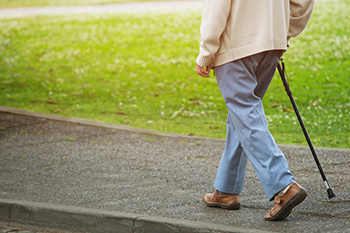Connect With Us
Blog
Fall Causes for Seniors and Prevention Strategies

For seniors, falls can pose serious risks to both physical health and independence. Understanding the underlying causes is pivotal in designing effective prevention strategies. Factors consisting of muscle weakness, poor balance, and reduced vision can play a significant role. Medication side effects, particularly dizziness or drowsiness, can also contribute to falling. Additionally, hazardous home environments, clutter, and uneven surfaces also heighten the risk. There are methods that can be implemented to prevent falling. Engaging in a regular exercise routine can help to enhance strength and balance. Vision checks and reviewing medications with a healthcare provider can be beneficial in reducing risks. Modifying the home environment by installing handrails, improving lighting, and reducing clutter fosters safety. By addressing these causes and adopting preventive measures, seniors can confidently navigate life while minimizing the risk of falls. If you would like more information about effective fall prevention techniques, it is suggested that you confer with a podiatrist.
Preventing falls among the elderly is very important. If you are older and have fallen or fear that you are prone to falling, consult with Dean Kim, DPM from Greater Texas Foot & Ankle Specialist. Our doctor will assess your condition and provide you with quality advice and care.
Every 11 seconds, an elderly American is being treated in an emergency room for a fall related injury. Falls are the leading cause of head and hip injuries for those 65 and older. Due to decreases in strength, balance, senses, and lack of awareness, elderly persons are very susceptible to falling. Thankfully, there are a number of things older persons can do to prevent falls.
How to Prevent Falls
Some effective methods that older persons can do to prevent falls include:
- Enrolling in strength and balance exercise program to increase balance and strength
- Periodically having your sight and hearing checked
- Discuss any medications you have with a doctor to see if it increases the risk of falling
- Clearing the house of falling hazards and installing devices like grab bars and railings
- Utilizing a walker or cane
- Wearing shoes that provide good support and cushioning
- Talking to family members about falling and increasing awareness
Falling can be a traumatic and embarrassing experience for elderly persons; this can make them less willing to leave the house, and less willing to talk to someone about their fears of falling. Doing such things, however, will increase the likelihood of tripping or losing one’s balance. Knowing the causes of falling and how to prevent them is the best way to mitigate the risk of serious injury.
If you have any questions, please feel free to contact our office located in Frisco, TX . We offer the newest diagnostic and treatment technologies for all your foot care needs.

